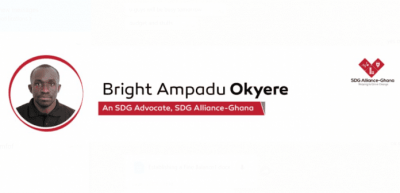The COVID-19 pandemic has brought severe and devastating effect on work especially employer-employee relationship. While the safety protocols are

The COVID-19 pandemic has brought severe and devastating effect on work especially employer-employee relationship. While the safety protocols are being observed in its strictest terms, vaccination is now on the burner.
Even though vaccinations have always been free and voluntary, some countries are beginning to institute measure to ensure that all its citizens get inoculated. A significant amount of time and effort has gone into carrying out campaigns to ensure adequate awareness on the virus and its effect on humans.
Governments have instituted various measures restricting those who have not taken the jab from accessing certain public places – restrictions at restaurants, stadia, boarding of buses, travel bans amongst others have all been introduced. These measures are rolled out to prevent further spread of the virus and also to protect the vulnerable.
Dozens of countries are offering COVID-19 vaccines for all adults. But uptake in many nations is stalling with a significant minority of people expressing doubts and online misinformation spreading conspiracy theories. In Russia, more than a third of adults are vaccine skeptics, followed by 27% of Americans and 17% of Germans, according to a tracker of 15 countries by data firm Morning Consult. This creates an issue for employers, with unvaccinated employees posing a risk not only to themselves but to colleagues and customers or service users.
The U.S. mandate – which was blocked by a federal court and is now headed for an appeal hearing, requires private companies with 100 or more workers to order staff to be vaccinated or undergo weekly COVID-19 tests. Italy, France and Britain are among many countries to impose vaccination orders for workers in the health or care sector, while Moscow is requiring jabs for public-facing workers from teachers to hairdressers.
Businesses around the world have settled for the “new normal” and are gradually recovering from the impact of the pandemic. Some companies are imposing rules requiring workers to get a COVID-19 jab while others are letting their staff go unvaccinated. Interestingly, some governments have ordered companies to impose vaccine mandates on employees.
Most organizations have also prescribed interventions to protect its employee and customers. Working from Home (WFH), keeping skeletal staff at their offices and running a shift system are all measures instituted by corporate organizations to protect its investment and to ensure that the general public is protected.
Employers cannot ask their workers to be vaccinated against COVID-19 as a requirement for providing their services because it is a voluntary measure. However, the employer has the responsibility to protect the life and interest of other co-workers who have taken the jab. Again, employers have a duty of care as they are required to ensure that workplaces are guided by safety protocols, highest standards of health and safety and WHO best practices.
Vaccination as a condition for returning to work would amount to a breach of their rights but such employees may be required by their employers to undergo mandatory test and submit test results either weekly or otherwise stated.
Many companies acting on their own initiative by demand that their staff get vaccinated as a condition of employment, reasons to justify such an action is not grounded. A number of employers have said they will demand vaccines for all workers, even when not required to do so by state officials and the appropriate regulatory state agencies. However, others are trying to exert pressure by demanding proof of vaccination to enter the office.
In our Ghanaian context, relevant provisions of the Labour Act and the policies, procedures and practices (PPPs) of various company will be meaningful in taking decisions concerning employees and vaccination. On the whole, companies carrying out vaccine mandates in response to official orders “should be fairly low risk” from legal challenges.
Bosses must also ensure they offer reasonable accommodation on the basis of those with medical vulnerability, disability, pregnancy and religion. Special attention must be given to people in these categories amongst others which may not have been captured so that getting vaccinated does not also trigger another medically situation. Any such thing may cause a legal suit which must be avoided.
Medical history of these employees and expert advice will be the best guide under the circumstance in arriving at a decision which will protect the interest of both the employer and the employee.
As many companies bring staff back into the workplace, businesses will likely have to make hard decisions taking into consideration people’s personal rights against public safety.
Human Resources professionals and practitioners must be mindful of attrition, making sure that they can retain their staff, they must feel safe and operate in a conducive work environment. Again, vaccination must not cause discrimination of any form since it can trigger low morale and affect productivity if not managed effectively.
Employers must put in measures that will encourage employees to take the vaccine, this will create a new normality at work. We need a fully vaccinated workforce to ensure the safety of all employees, customers, dealers, vendors/suppliers and the general public.
Protecting labour rights and promoting safe and secure working environments for all workers is a key target of SDG8 – Decent Work and Economic Growth. Designing activities to protect work environment will be in partial fulfilment of SDG8.
Source: Bright Ampadu Okyere (An SDG Advocate) SDG Alliance, Sonia Elks/ www: news.trust.org, Email: sdgallianceghana@gmail.com, Twitter: @ghanasdg Facebook: SDG Alliance-Ghana Tel. # 0244204664
COMMENTS